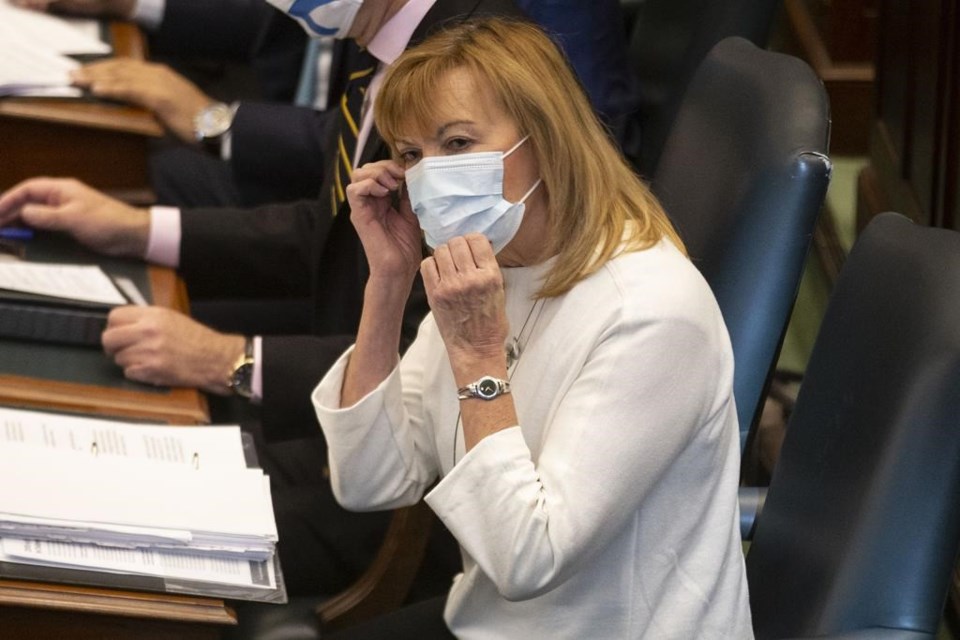TORONTO — Ontario's health minister says it could take months to learn enough about the new Omicron variant of COVID-19 to determine whether the province's plan to ease COVID-19 restrictions should be altered.
Health Minister Christine Elliott was asked Monday about the province's plan to loosen rules on vaccine certificates in some settings as early as Jan. 17, in light of a recent surge in cases and the emergence of the potentially dangerous new variant.
Speaking during question period, Elliott said the province has always said it would adjust its plan if the situation called for it.
"We're planning to start lifting things but if this omicron variant circulates widely, and if it's a virulent as it has been in other jurisdictions, we are going to need to take a look at that," she said.
"But right now, we don't have the pertinent information that we need in order to make a decision. I anticipate that will become evident over the next several months as we see what happens in South Africa and other jurisdictions."
Public health data shows there have now been at least 13 cases of the new Omicron variant confirmed in Ontario. The variant, believed to be more transmissible than others, was first identified in South Africa but has been detected in a number of other countries.
On Sunday, health officials in Thunder Bay, Ont., said the variant was confirmed in four residents, and was anticipated to be confirmed in four more in the coming days. The Thunder Bay District Health Unit said all individuals affected are in the same household and have been isolating. The unit said there is a "direct link" to southern Africa.
The health minister's comments came as Ontario reported 887 new COVID-19 cases on Monday, pushing the seven-day average up to 940. The province also recorded three new deaths from the virus.
People who are not fully vaccinated accounted for 397 of Monday's new cases, and make up 23.3 per cent of Ontario's population, while 64 cases are in people whose vaccination status isn't known, Elliott said.
The minister said 168 people are in intensive care units due to COVID-19, though not all hospitals report updated numbers on weekends.
Meanwhile, Toronto health officials said breakthrough COVID-19 infections have occurred in 0.17 per cent of fully vaccinated residents in the city — 3,936 cases in nearly 2.3 million Toronto residents 12 and older who were fully vaccinated at the time of the analysis.
The city said its data show that people who are unvaccinated are two times more likely to become infected with COVID-19, five times more likely to become hospitalized, and 20 times more likely to be admitted to an intensive care unit than those who are fully vaccinated.
Unvaccinated people are also four times more likely to die from COVID-19, compared with fully vaccinated people, it said.
Provincial data show just over 90 per cent of Ontarians 12 and older have received one dose of a COVID-19 vaccine, and 87.3 per cent have two. Twenty-one per cent of children five to 11 years old have received a dose of a pediatric COVID-19 vaccine, the health minister said.
This report by The Canadian Press was first published Dec. 6, 2021.
The Canadian Press



